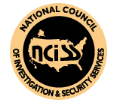International Fraud Awareness Week (November 12-18, 2017) was started by the Association of Certified Fraud Examiners (ACFE) in 2004 to increase awareness of fraud, especially through digital or electronic means. According to the ACFE, companies lose a projected 5% of revenue every year due to fraud. The most frequent targets of fraud are small to medium-sized businesses. There are three types of fraud: theft, misuse of assets and financial statement fraud. Of these, the AFCE reports theft is the most common form of fraud businesses encounter and the most common perpetrators are employees. How can you protect your business from fraud? We have some tips to help.
1. Train employees to help prevent fraud. Many employees may be uncertain if they’ve witnessed something fraudulent and that uncertainty may prevent them from reporting suspicious activity. Training employees to recognize and identify fraud and common red flags of fraud increases awareness and certainty when they do witness suspicious behavior and helps them feel more confident in reporting it.
2. Closely monitor all business accounts, both banking and credit, to catch fraud in early stages. Common things to watch out for are checks cashed out of order, payments with missing receipts and payments to companies or accounts you don’t recognize. To avoid relying on paper statements that have been tampered with, it’s best to monitor accounts online. Online monitoring also shows you potential discrepancies faster than waiting for a statement.
3. Trace all transactions with audit logs. Maintaining clear and detailed audit logs for every transaction makes it more difficult for employees to hide fraudulent transactions.
4. Restrict employee access to information about financial assets, passwords, accounting software and other information that could be used to commit fraud. Also, if possible, restrict employee access to inventory and back-stock and keep clear records of who accessed inventory areas and when.
5. Never have only one employee managing all aspects of accounting and bookkeeping. Separate accounting duties and cash-handling duties to make it more difficult for one person to steal and bury the evidence.
6. Thoroughly check out every report of suspicious activity or suspected fraud made by an employee. Even if you think the report is likely unfounded, check out every report. Unfortunately, when employees commit fraud or theft, it is often someone the business owner would least expect.
No business is completely fraud-proof, but you can make it much more difficult for anyone – including employees – to commit fraud against your business by being aware and following the tips above. If you suspect fraud or theft in your business, call Bulldog PI to get to the bottom of it.










